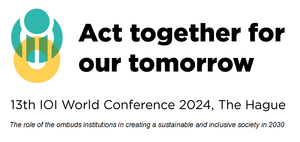The Commissioner of Official Languages recommends that the government prioritize early childhood development in Francophone communities.
A lack of resources, a shortage of early childhood educators and the fragmentation of services are only some of the shortcomings hindering early childhood development in Francophone minority communities, according to a report released today by Commissioner of Official Languages Graham Fraser.
“Early childhood development is crucial to the vitality of Francophone communities,” said Mr. Fraser. “Accessible, quality services not only help Francophone parents pass on their language to their children, but also support the transition to French-language schools, and develop a sense of belonging to the community.”
The report, titled Early Childhood: Fostering the Vitality of Francophone Minority Communities, presents a portrait of the issues related to early childhood development, an area that is of particular importance for the vitality of Francophone communities.
Mr. Fraser would like to see the federal government fund initiatives supporting early childhood in its next official languages plan.
“The inclusion of early childhood in the official languages plan would enable us to address the challenges outlined in my report. Adequate, stable and sustained investment in early childhood development will have a significant impact on Francophone communities across the country,” the Commissioner added.
In his report, Mr. Fraser issues four recommendations to the Minister of Canadian Heritage and the Minister of Families, Children and Social Development.
Persons with disabilities make up around 15 % of the global population, and comprise a significant minority of refugees and migrants. In addition to pre-existing physical, sensory, intellectual or psychosocial impairments, people may acquire or develop impairments during the migration process. When identified, these impairments place an obligation on Member States to provide specific support throughout the arrival, registration and asylum process.
There is little information available on the situation of migrants and refugees with disabilities recently arrived in the EU, resulting in anecdotal evidence and individual reports of particular challenges faced. A thematic focus of the European Union Agency for Fundamental Rights (FRA) explores practices in four areas crucial to persons with disabilities and victims of torture in the current migrant situation.
Source: Office of the Commissioner of Official Languages, Canada

